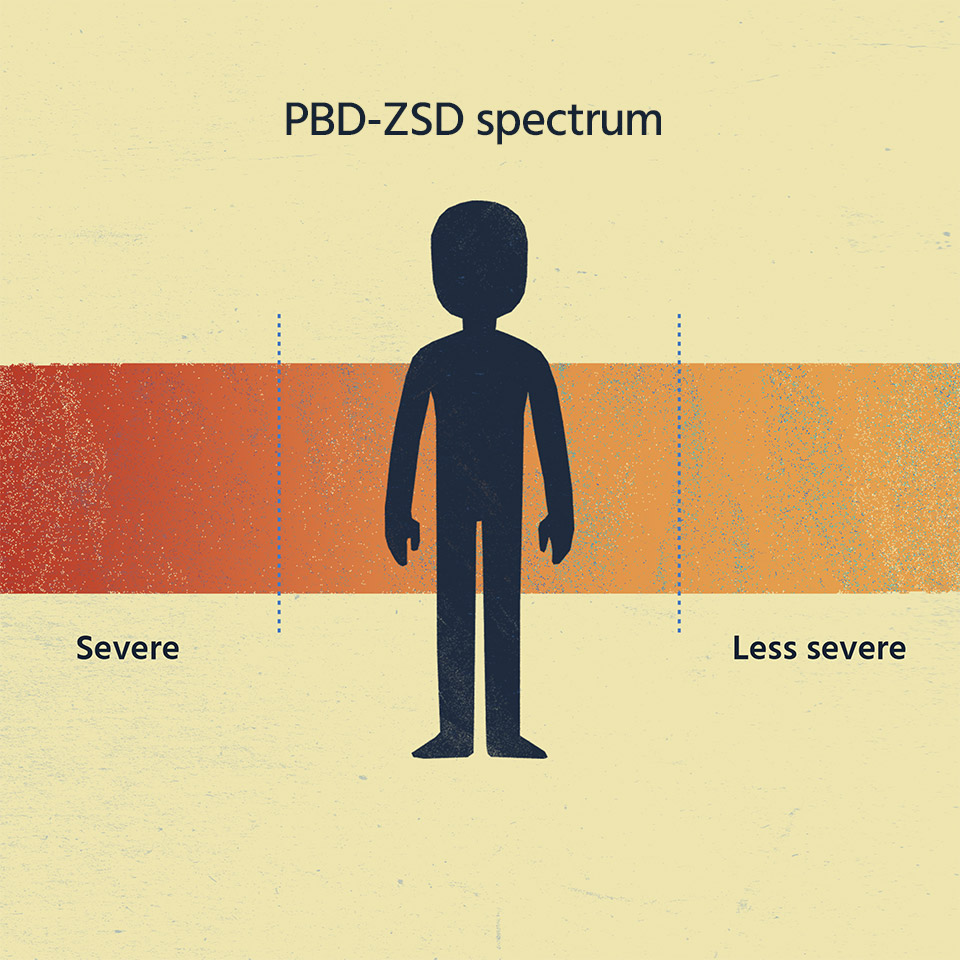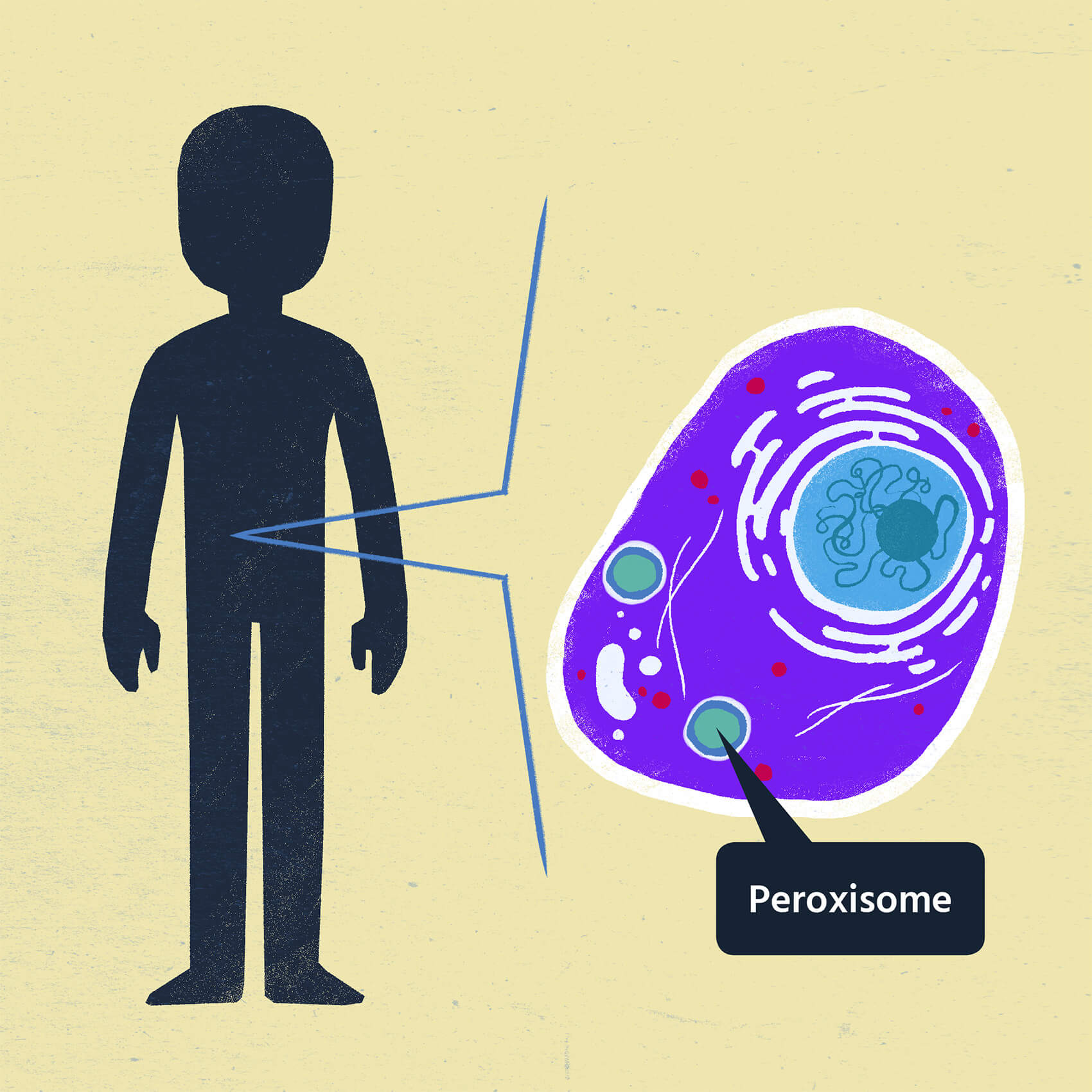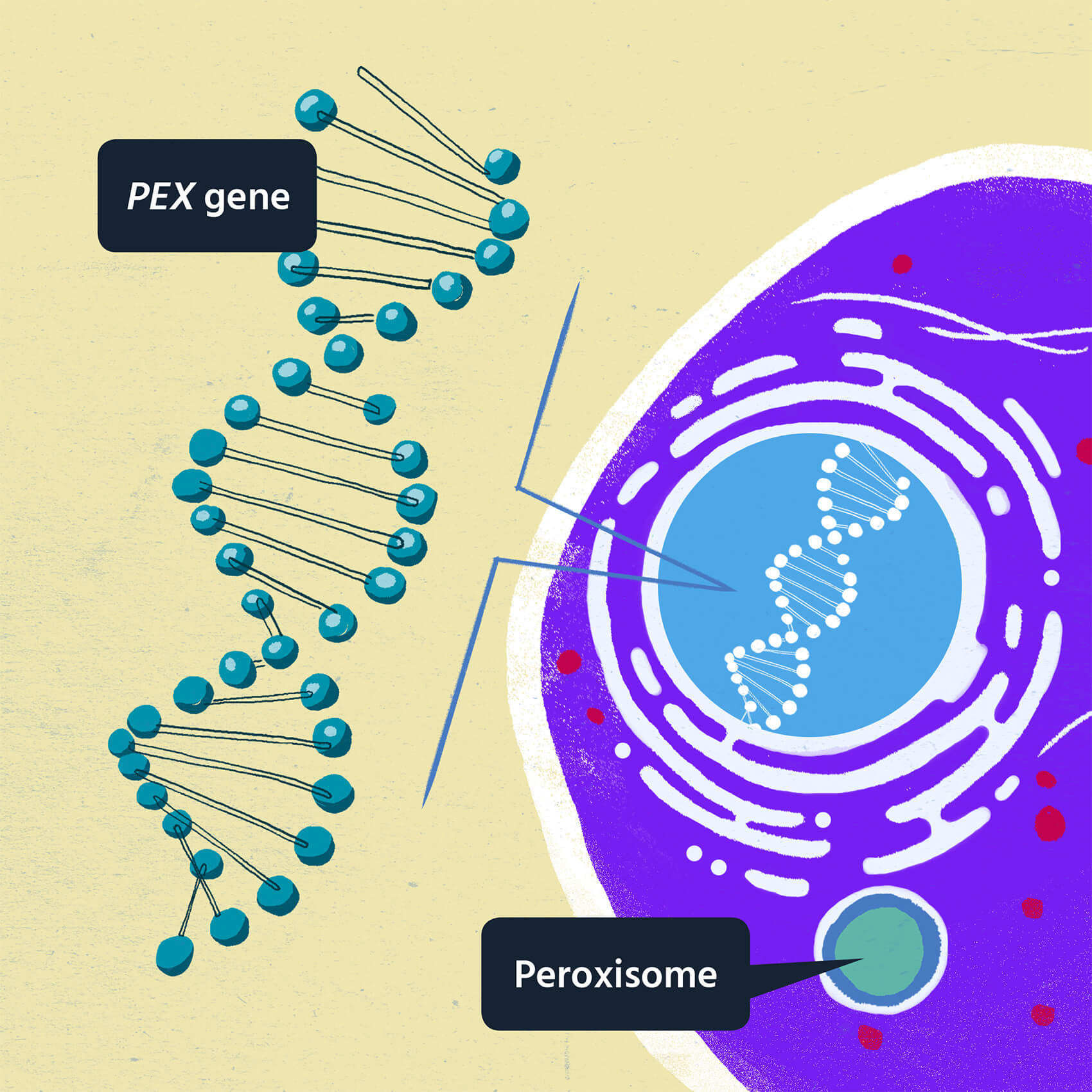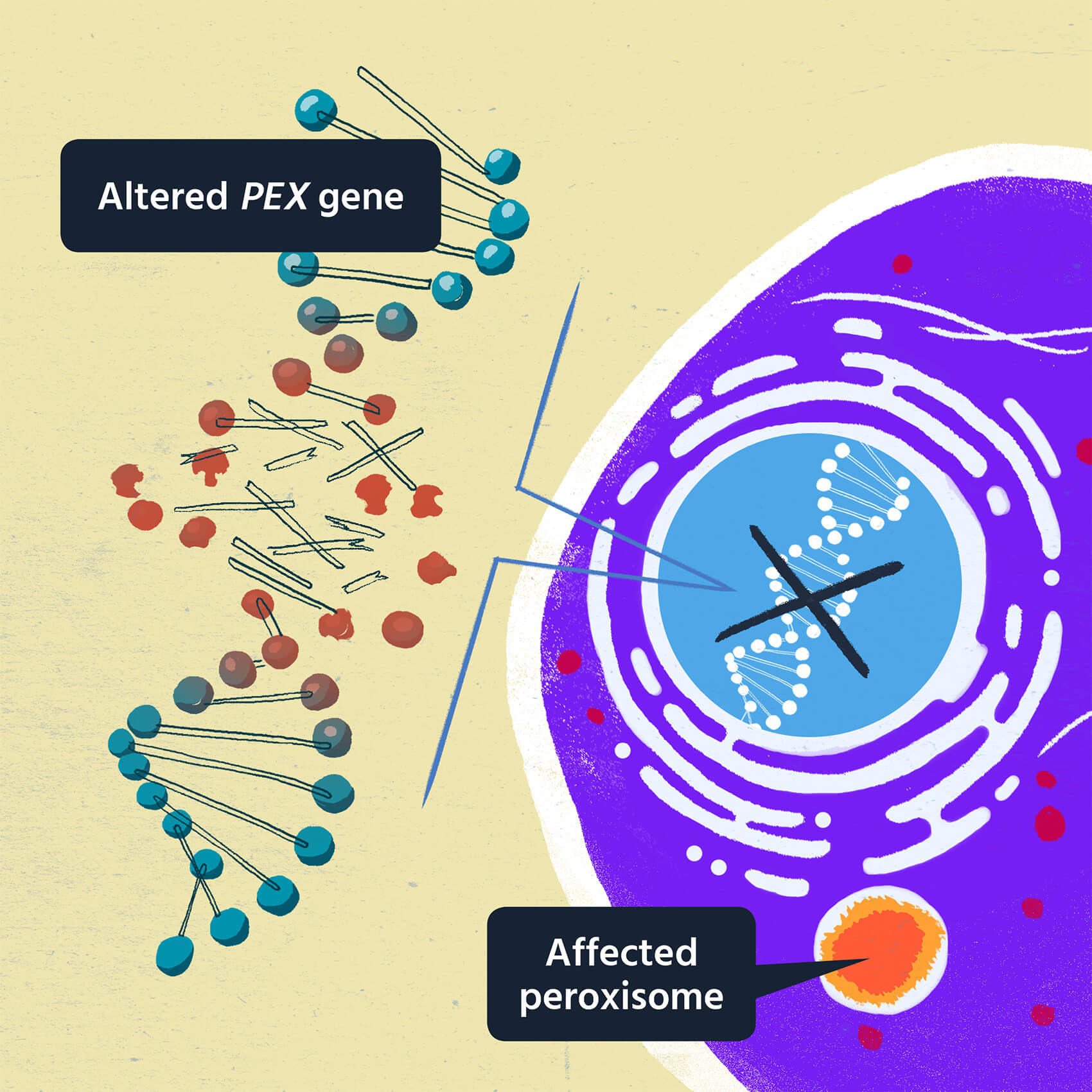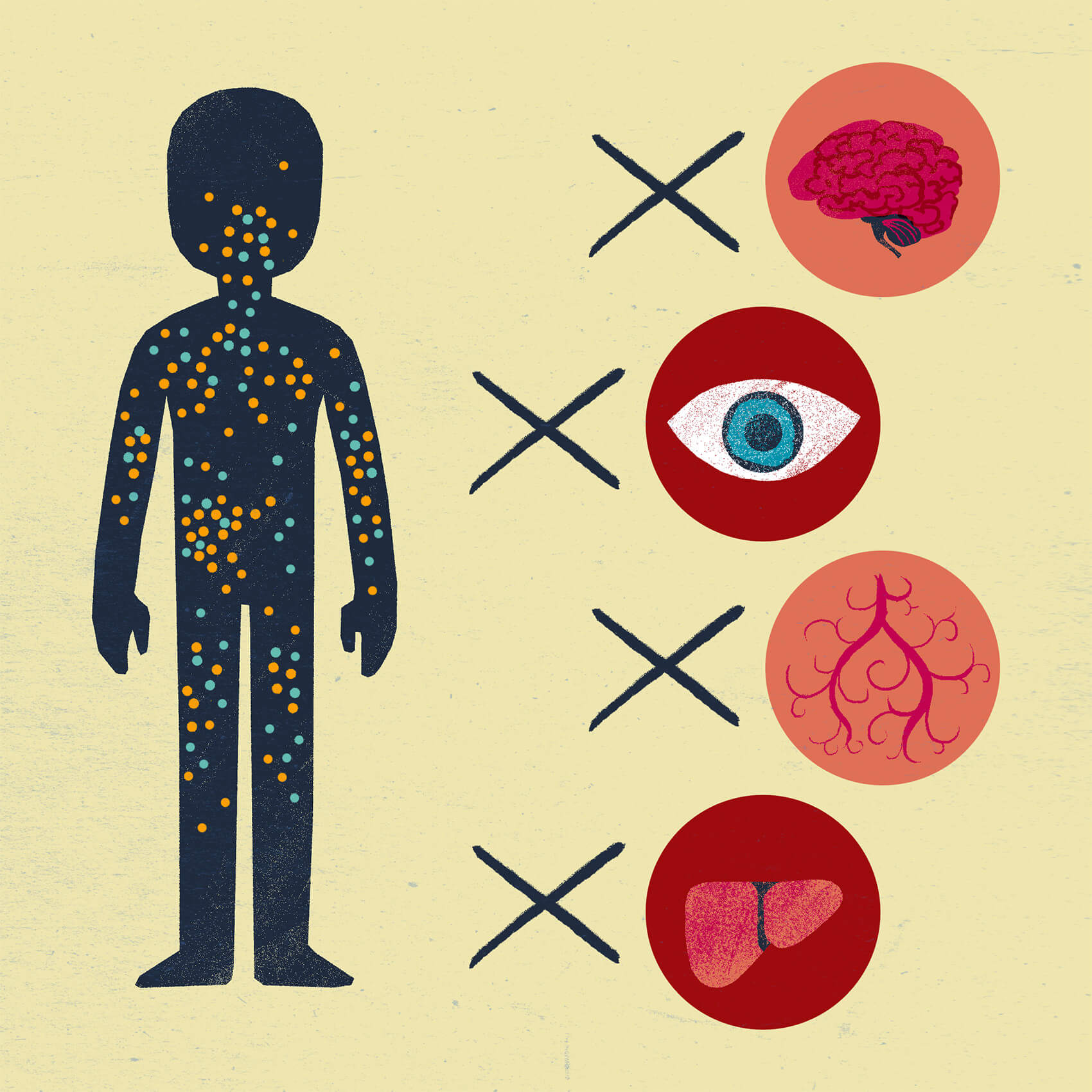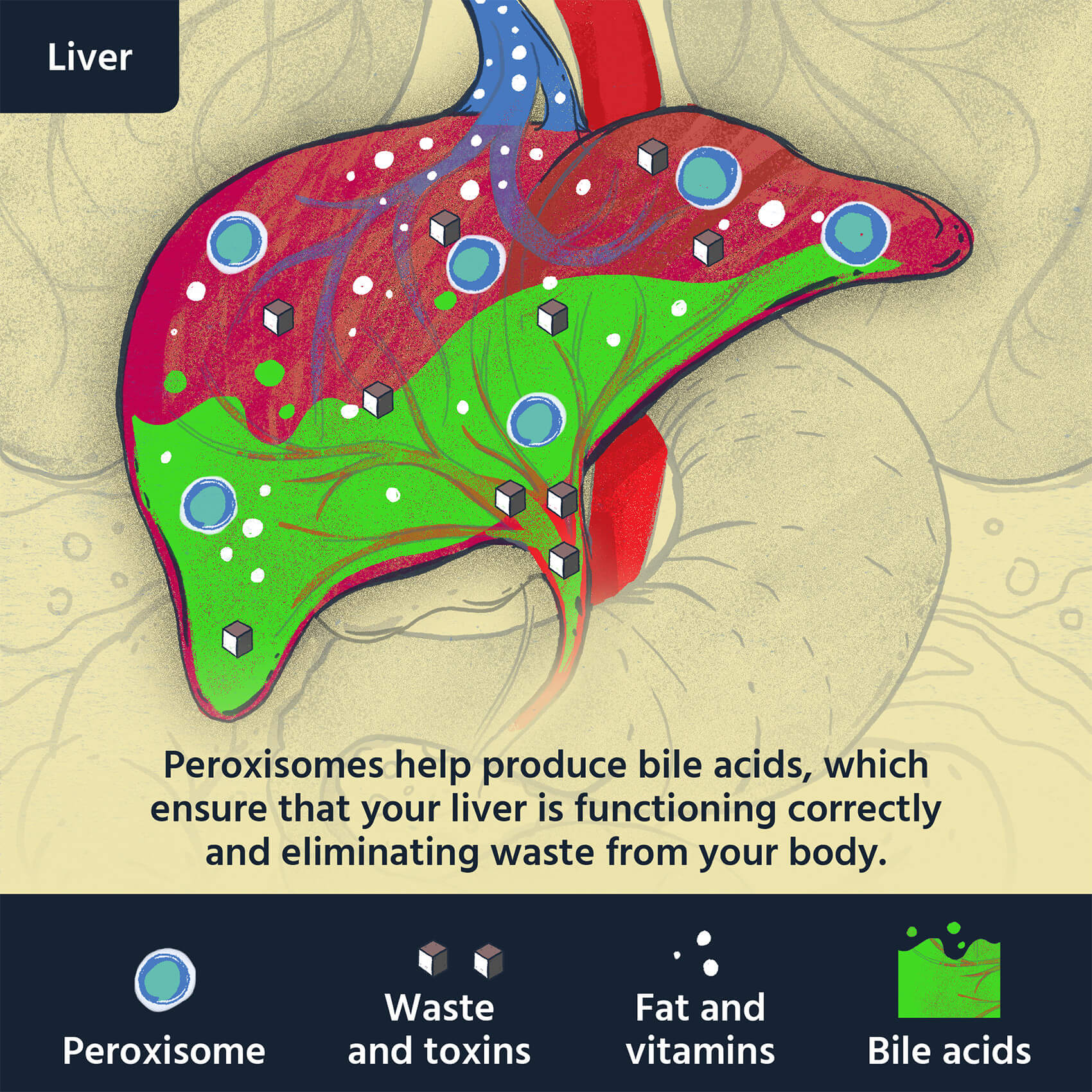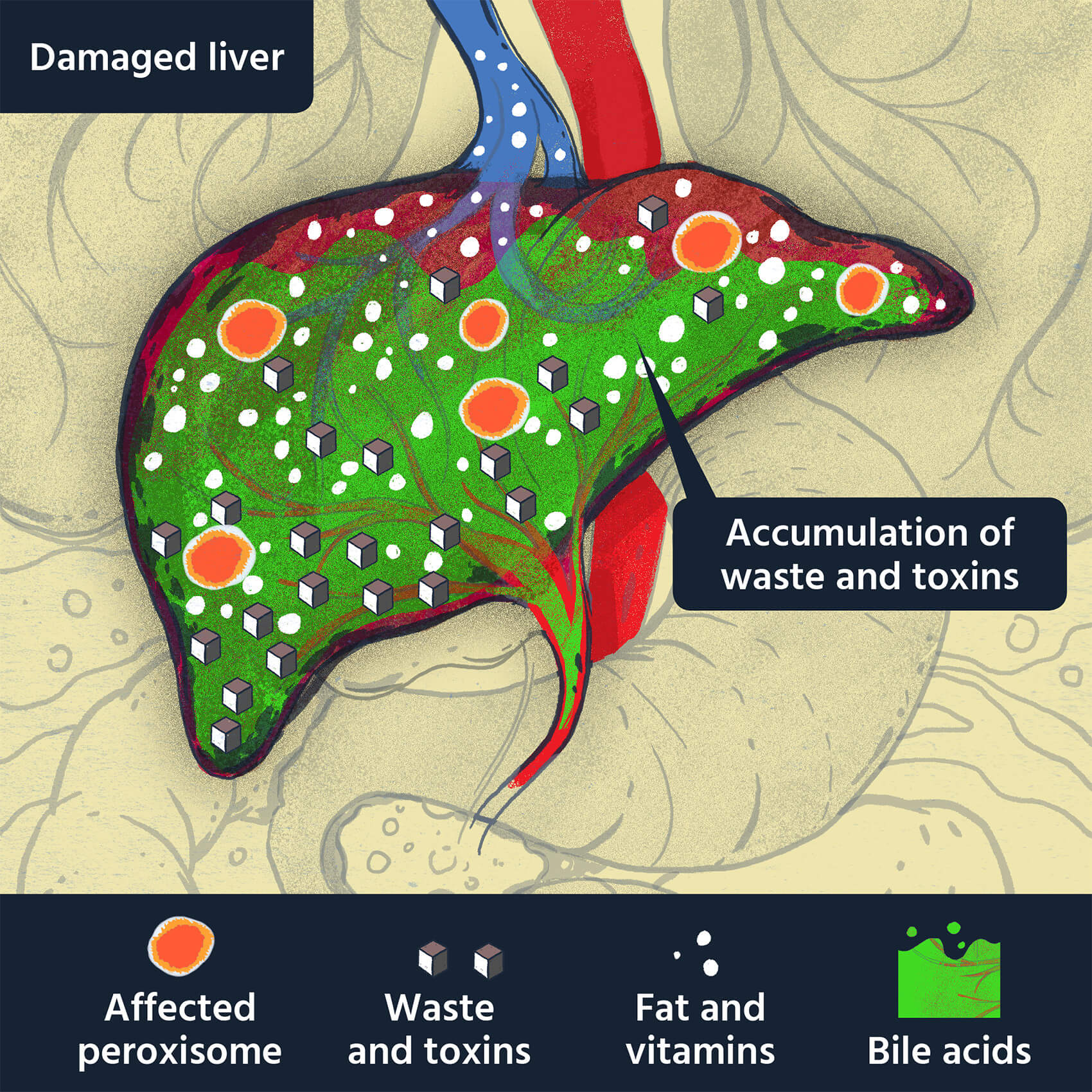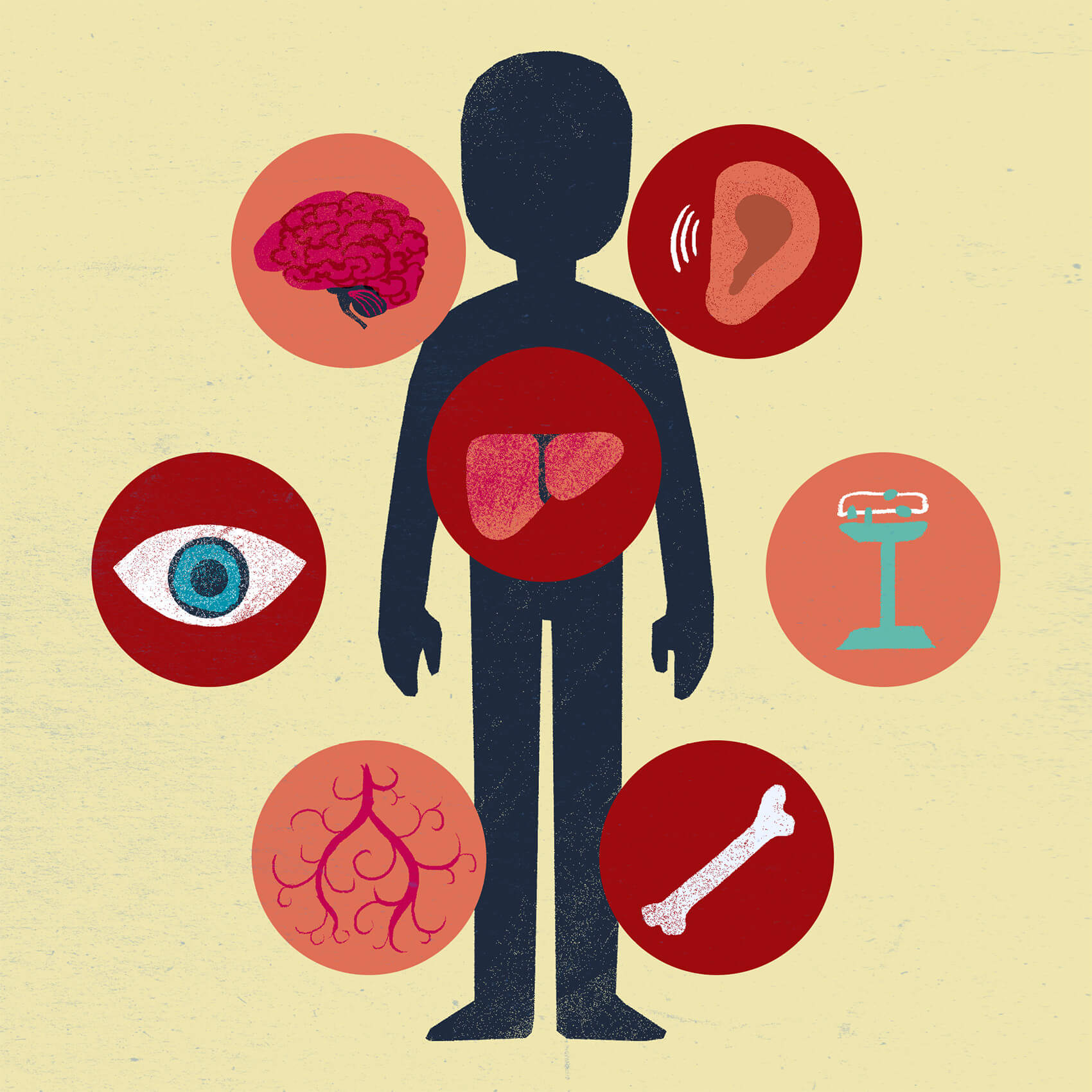PBD-ZSD is a set of genetic diseases caused by a loss of peroxisome function. Peroxisomes are important parts of your cells that are responsible for breaking down fats and chemicals, and getting rid of waste so that your body can function properly.
A family of genes called PEX provides the instructions for how to correctly assemble peroxisomes, Peroxisomes that are not assembled correctly will not function properly.
In people with PBD-ZSD, a permanent alteration in the PEX gene family leads to a loss of peroxisome function. If peroxisomes are not working, cells can no longer maintain their normal functions, altering the body’s usual routine and leading to many problems over time.
Because peroxisomes are present in almost all cells, loss of peroxisome function can cause harmful consequences to the entire body. Many key organs, including the brain, eyes, and liver, cannot function properly.
Let’s look at an example of how the absence of working peroxisomes can affect how an organ works. A large number of peroxisomes can be found in the liver, aiding in the production of bile and bile acids. Bile acids help to absorb fats and vitamins from the food you eat while eliminating cholesterol, waste, and other toxins from your body.
Because of the reduction or absence of working peroxisomes in the liver, bile acids cannot be made correctly. Toxic components, such as atypical bile acids and waste, get trapped in the liver, resulting in a condition called cholestasis. This toxic buildup can lead to inflammation, liver damage, and cirrhosis, which is when the liver becomes scarred and unable to function properly.
Peroxisomes play a similar role in different organ systems, so their abnormal function can lead to a variety of symptoms. People with PBD-ZSD may experience multisystemic complications including neurological problems and seizures, delayed growth and development, hearing and vision loss, poor muscle tone, and skeletal and dental abnormalities.
There is no way to predict exactly where a person's disease will fall on the spectrum. There are many factors that contribute to how the disease will affect someone, including the age at which their symptoms first start to appear, the number of functioning peroxisomes they have, and the rate at which the disease progresses.
Because it can affect many organ systems of the body, PBD-ZSD requires a diverse team of specialists to help monitor and manage the symptoms of disease. Talk to your healthcare team about routine checkups and the best ways to support your child or loved one with PBD-ZSD.
